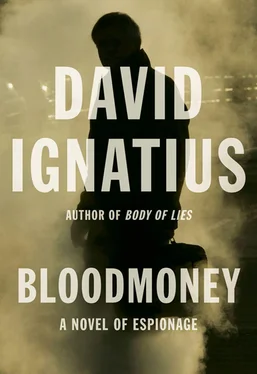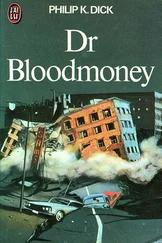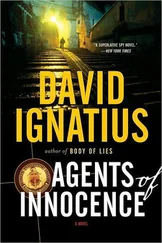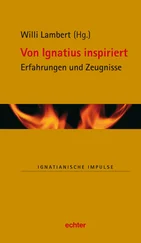David Ignatius - Bloodmoney
Здесь есть возможность читать онлайн «David Ignatius - Bloodmoney» весь текст электронной книги совершенно бесплатно (целиком полную версию без сокращений). В некоторых случаях можно слушать аудио, скачать через торрент в формате fb2 и присутствует краткое содержание. Жанр: Шпионский детектив, на английском языке. Описание произведения, (предисловие) а так же отзывы посетителей доступны на портале библиотеки ЛибКат.
- Название:Bloodmoney
- Автор:
- Жанр:
- Год:неизвестен
- ISBN:нет данных
- Рейтинг книги:4 / 5. Голосов: 1
-
Избранное:Добавить в избранное
- Отзывы:
-
Ваша оценка:
- 80
- 1
- 2
- 3
- 4
- 5
Bloodmoney: краткое содержание, описание и аннотация
Предлагаем к чтению аннотацию, описание, краткое содержание или предисловие (зависит от того, что написал сам автор книги «Bloodmoney»). Если вы не нашли необходимую информацию о книге — напишите в комментариях, мы постараемся отыскать её.
Bloodmoney — читать онлайн бесплатно полную книгу (весь текст) целиком
Ниже представлен текст книги, разбитый по страницам. Система сохранения места последней прочитанной страницы, позволяет с удобством читать онлайн бесплатно книгу «Bloodmoney», без необходимости каждый раз заново искать на чём Вы остановились. Поставьте закладку, и сможете в любой момент перейти на страницу, на которой закончили чтение.
Интервал:
Закладка:
“I hope that still works,” said Rossetti.
Marx was going to say something upbeat in response, but it wasn’t in her.
Jeff Gertz’s mystery trip was to Washington, D.C., perhaps the least mysterious city in the world. He went there to meet with the president’s chief of staff, Ted Yazdi. It was an unusual encounter nonetheless. It took place in a private home in Bethesda that belonged to one of Yazdi’s assistants, who had vacated the house at the boss’s request. It was like an agent meeting in that respect, though it was hard to say who had recruited whom.
The safe house was a big suburban estate up on a hill. It looked like the clubhouse of a country club, with a big portico and a facade of brick and stone, and well-mowed grass on all sides. The floodlights were on, and a man in a bulky suit was standing in the driveway, scanning the street.
Yazdi was waiting in the living room when Gertz knocked on the door. He was wearing dark glasses, even though the curtains were drawn, and was chewing on a piece of gum. He sat on the edge of the couch, anxious for the meeting to begin. There are civilians who are easily seduced by secrets, who chortle over the details the briefers throw in about foreign leaders’ sex lives or health problems, and Yazdi was one of them. He was eager to enter an otherwise forbidden world.
Yazdi had asked for an update on The Hit Parade’s operations. Nothing on paper, for obvious reasons. The president was preoccupied with his legislative agenda, and the chief of staff didn’t want to bother him, so he was holding it in his head. It was hard for him to keep it all straight.
“I get paid to be nervous,” he began. “That’s what I do for a living. So I need to know all your shit. It’s on me if anything goes wrong. I’m holding the bag.”
“Nobody’s holding the bag, sir, because there is no bag. As I told you when we agreed to set up our capability, we don’t exist. We are self-funding, and self-liquidating.”
Yazdi took off his sunglasses. He had a narrow face and a mouth that was always parted slightly at the lips, as if ready to bite.
“I don’t believe you. How is that possible? I worked for an investment bank. Money has to come from somewhere.”
“Don’t ask me, Mr. Yazdi, please. You don’t want to know. We have a system. It works. We have more than enough money.”
“Okay.” Yazdi nodded. He hated not having every last secret. “Tell me the list.”
Gertz ran through the list of countries where they had operations. It had all the names you would expect: Lebanon, Syria, Iran, Egypt, Pakistan, Afghanistan. And it had a few names that you wouldn’t expect, such as China and Russia and France.
“Pakistan’s the biggest, right?” asked Yazdi. “That’s the hardest one, isn’t it? They’ve got two hundred million pissed-off people, plus nuclear weapons. Scary shit.”
“The Paks are our main target right now, sir. That’s where we have put the most effort, in people and money.”
“Is it working?” asked Yazdi. “That crazy shit in Karachi when your guy vanished scared me.”
“It will take time. But money does wonders when you spread it around. I don’t know anyone who doesn’t want to be rich. Even in Pakistan.”
“How do you get your names? I mean, how do you know who to bribe?”
“People tell us things. Old friends, new friends, throw in some secret ingredients. Put them all together, cook it in the oven and, voila, it’s a souffle.”
“I hope so, buddy. This is ‘Project Pax.’ That’s what I told the president. We’ve spent enough time fighting our enemies. Now we are going to buy them off. It’s time for ‘global green,’ meaning money. We are going to have a leveraged buyout of all the people who have been trying to fuck us over. That’s my line to the boss, just so you know. That’s right, isn’t it? That’s the strategy.”
Gertz nodded. Strategy was not something that interested him. He was an operator; he usually left the big-think stuff to others, though in this case there wasn’t really anyone to leave it to, other than the gum-chewing White House chief of staff, who had only the vaguest notion of what they were doing.
Gertz didn’t worry about it. His job was to serve the president, and if the president wanted to hose the war zone with money so people would stop killing Americans and he could get reelected, that was fine. Gertz wanted to get the job done. He found the right people, assembled lists of names, developed capabilities and covers. And soon the activity had taken on a life of its own; it had been set in motion and now it was hard to stop.
“Project Pax,” said Gertz, nodding his head. “That’s great. I like that. The president will get a Nobel Peace Prize, and you and I will be the only people who will understand how it happened.”
16
Alan Frankel had every reason to think he was safe. His surveillance detection run had stretched across two countries by the time he got to Moscow. He had flown from his home in Amsterdam to Berlin to meet some potential clients for his advertising firm, Kiosks Unlimited, which despite its grand name had just one salesman, him, and a secretary. Then he had traveled to Prague for a day, meeting another prospective client and sending a string of text and Internet messages. In each city, he had posted an entry to “Admonitions,” his blog about the global media market. His cover was backstopped and integrated at every level; the deeper someone went on the Internet to check him out, the more confirmation they would find for his identity.
And now Alan Frankel was in Moscow on the last leg of his trip. He was staying at the Volodya Park, a new hotel on the south bank of the Moscow River, just below the old Red Square. It wasn’t as fancy as the Kempinski or the Four Seasons, not by half. But the little hotel was just right for a young ad-sales representative who was pushing into a freewheeling market with his laptop and lots of hustle.
Jeffrey Gertz thought of Frankel as one of his up-and-comers. He sometimes referred to him as “Blogger Boy” in meetings with his senior staff in Studio City. Frankel was the new-age operations officer who could go anywhere in the world he wanted because his cover was impenetrable.
Sometimes Gertz posted his own comments to “Admonitions,” under the screen name “Ironman23.” He would opine on publicity campaigns for new movies and music releases. Occasionally he would post a subtle word of praise for Frankel following an especially good operation, disguised in what he imagined was blogger language and signed, Ironman23.
Russia was a hard place to operate, even Gertz admitted that. The Russians had total control of the environment, with fixed surveillance everywhere: They saw you coming in and going out; they watched as you waited for a Metro train, or crossed the street, or sat in the hotel lobby. It wasn’t worth the trouble arranging meetings in Moscow, anyway, the old pros said. It was so easy now for Russians to get out of the country. Let them fly to Croatia or Majorca with the other tourists and meet you there.
But that no-go logic was for losers, according to Gertz. There was no such thing as a denied area in his world of mobile platforms. The Hit Parade could operate anywhere and everywhere-getting its people in and out before the local service had a chance to notice their passport stamps, let alone rumble their missions. In his operational atlas, Moscow was no different from Munich or Montreal.
Alan Frankel had come to Moscow to meet a Pakistani diplomat who had been posted to Moscow a year before. He was from a prominent Punjabi family in Lahore, whose members included the leaders of the political party that dominated the province, some of whom had a history of making trouble for America. Frankel was going to offer him a lot of money-so much money that in the old, pre-Gertz days, it would have been authorized by a covert action “finding.” What the Pakistani would have to do in return was steer his family away from the anti-American virus that infected Punjabi politics.
Читать дальшеИнтервал:
Закладка:
Похожие книги на «Bloodmoney»
Представляем Вашему вниманию похожие книги на «Bloodmoney» списком для выбора. Мы отобрали схожую по названию и смыслу литературу в надежде предоставить читателям больше вариантов отыскать новые, интересные, ещё непрочитанные произведения.
Обсуждение, отзывы о книге «Bloodmoney» и просто собственные мнения читателей. Оставьте ваши комментарии, напишите, что Вы думаете о произведении, его смысле или главных героях. Укажите что конкретно понравилось, а что нет, и почему Вы так считаете.












